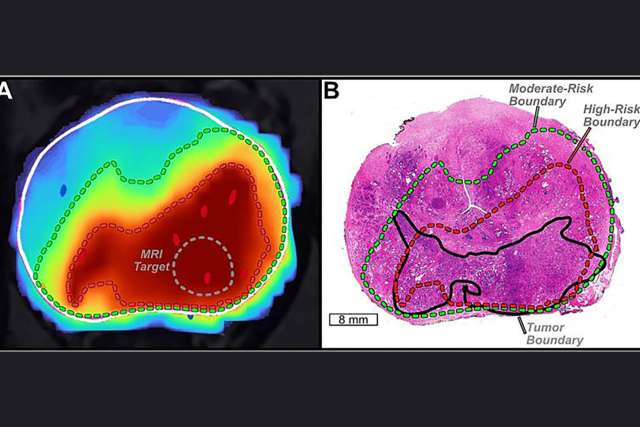Researchers at the UCLA Jonsson Comprehensive Cancer Center and David Geffen School of Medicine at UCLA have identified a new biomarker that could indicate how likely someone is to respond to treatment for lung cancer. In a test using mice, the scientists found that the level of activity of the mitochondria in lung tumor cells could potentially predict who would respond favorably to a type of drug called a complex I inhibitor, which targets mitochondrial function — and that the mitochondria activity could be tracked noninvasively using a PET scan.
The study was the first to use a noninvasive imaging technique to track the activity of mitochondria in lung tumors.
BACKGROUND
Mitochondria are the powerhouses of all cells, and they play a particularly important role in sustaining the growth and survival of cancer cells. Until now, though, there has not been an effective way to get clear images of mitochondria activity in living animals. Scientists have been seeking a noninvasive way to capture images of mitochondria in living organisms so they can better understand how lung tumors use mitochondria to advance their growth.
METHOD
The team used a voltage-sensitive positron emission tomography, or PET, probe to detect mitochondria activity in mice with a version of lung cancer. After imaging, the tumors were surgically removed so the mitochondria's function and activity could be analyzed in detail.
IMPACT
The findings could help guide treatment decisions for people with lung cancer, and the study demonstrates that PET imaging can be used to read mitochondrial activity in lung tumors.
AUTHORS
The study's senior author is David Shackelford, associate professor of pulmonary and critical care medicine at the Geffen School of Medicine and a member of the Jonsson Cancer Center. The first author is Dr. Milica Momcilovic, a senior research scientist at the Geffen School of Medicine.
JOURNAL
The study is published online in Nature.
FUNDING
The research was supported by the National Institutes of Health's National Cancer Institute and the National Center for Advancing Translational Sciences.





